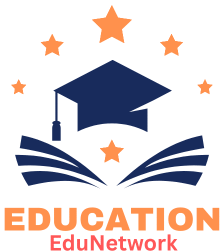Early childhood education consultant roles have become increasingly common in recent years as more institutions, including schools, daycares, and organizations, have come to recognize the need of expert guidance in developing optimal environments for young learners. With a passion for helping young children learn and grow, you may find success as a consultant in the field of early childhood education.
Read this post to learn everything about early childhood education consultant roles. We’ll go over the job description, the skills needed, the salary range, and any other advice you may need to get the job. Whether you’re considering a career change from classroom teaching to consulting or are just starting out, this book will provide valuable insights to help you navigate this gratifying field.
Why Hire a Consultant Specialized in Early Childhood Education?
An early childhood education consultant is an expert in the field who provides advice and support to groups, schools, parents, and programs in the field of early childhood education. Improving the quality of care and education for children, often from birth to eight years old, is their primary duty.
Community organizations, daycare centers, and schools work together with these consultants to:
-
Design instructional strategies and lesson plans.
-
Share effective strategies with teachers and staff.
-
Check whether the program is effective and if it complies with regulations.
-
Facilitate families’ understanding of children’s growth.
-
Put cutting-edge tools and resources for teaching to use.
Consultant roles in the field of early childhood education often call for candidates with extensive knowledge of educational legislation, theories of child development, and curriculum requirements.
Essential Responsibilities of Early Childhood Education Consultants
The responsibilities of an early childhood education consultant might vary from one company and job role to another. However, usual duties encompass:
-
Program assessment: Assessing the pros and cons of early childhood programs to find out where they may be improved.
-
Professional development: Creating and providing training opportunities for early childhood educators, such as seminars, coaching, and training sessions.
-
Making lesson plans and selecting resources: Providing direction on developing lesson plans and selecting resources that are suitable for different age groups.
-
Helping families: Educating parents about stages in their children’s growth and ways to foster learning at home.
-
Help with accreditation and compliance: Providing programs with the resources they need to meet state and federal regulations, accreditation standards, and licensure requirements.
-
Advocate for policies and research: Staying current on the latest discoveries and drafting legislation to promote high-quality early childhood education.
Early Childhood Education Consultant Roles, Responsibilities, and Essential Skills
Successful candidates for early childhood education consultant roles often have a combination of relevant academic background, relevant work experience, and specific skill sets.
Educational Requirements
-
A bachelor’s degree is often necessary for most professions in the field of early childhood education, child development, education, psychology, or a related field.
-
Employers often prefer or even demand a master’s degree in early childhood education, educational leadership, or curriculum development.
-
Possessing a certification, such as a Child Development Associate (CDA) credential, state license, or specialized skills in early childhood education consulting could open doors to better job offers.
Essential Skills
-
Expertise: Thorough understanding of educational best practices, child development, and early learning standards.
-
Communication: Ability to articulate thoughts clearly enough for school officials, parents, and instructors to grasp.
-
Analytical thinking: Capacity to assess programs and develop individualized plans for development.
-
Interpersonal skills: Ability to work well with different types of groups and make new relationships.
-
Training and facilitation: Skill in facilitating workshops and other professional development events.
-
Problem-solving: Creative approaches to addressing issues in early childhood education settings.
A Guide to Finding Work as a Consultant for Early Childhood Education
There is a wide variety of settings where one could find employment as a consultant for early childhood education:
-
Several school districts use consultants to improve their kindergarten and preschool programs.
-
Childcare facilities: Consultants are often sought after by both for-profit and non-profit childcare providers for curriculum advice and training.
-
Public sector agencies: State education or human services ministries may employ outside experts to oversee preschool programs throughout the country.
-
Nonprofits: Groups that focus on children’s care and education often employ consultants to help with program development and evaluation.
-
Companies in the consulting industry: Some consultants work alone, while others are part of larger consulting firms that specialize in educational services.
-
Consultants may also find employment at academic institutions and engage on research or programs aimed at preparing teachers.
Salary Expectations for Early Childhood Education Consultant Roles
Early childhood education consultant wages are affected by factors such as geography, level of experience, education, and the kind of employer. Data from the US Bureau of Labor Statistics and sources inside the industry show:
-
Starting consultants may expect an annual pay of $45,000 to $60,000.
-
Seasoned consultants may earn $70,000 to $90,000 or even more with additional degrees and specialized knowledge.
-
Consultants working for well-known firms or as independent contractors might earn six-figure incomes.
-
Paid vacation, retirement plans, health insurance, and opportunities for promotion are common perks.
Instructions for Starting a Career as a Consultant in the Field of Early Childhood Education
-
Earn an employable degree: A bachelor’s degree in elementary education or a related field should serve as your first academic objective. A master’s degree may help you stand out from the crowd when applying for high-paying employment.
-
Gain practical experience: Gain practical knowledge of the field by working as a preschool teacher or administrator.
-
Take courses or acquire a qualification: Specialize in leadership, curriculum design, or assessment to hone your abilities.
-
Join professional organizations: A great way to meet other professionals in the field is to become a member of an early childhood education organization, such as NAEYC.
-
Start looking for entry-level consulting jobs: Find work as a contract worker or an assistant consultant if you want to learn the consulting ropes.
-
Maintain a thirst for knowledge: Stay current on policy changes, research, and technology developments in the field of early childhood education.
Benefits of Working as an Early Childhood Education Consultant
-
Play a role in shaping the early years of children’s education.
-
Diverse opportunities: Work with different groups and projects.
-
Some consultants work independently and have flexible schedules.
-
Staying up-to-date with the latest developments in education and continuing one’s own education are essential components of professional growth.
-
Potential to have an effect on policies and standards pertaining to the early childhood education sector.
Difficulties in Landing a Job as a Consultant for Early Childhood Education
While the work itself may be satisfying, there are a number of challenges to keep in mind:
-
Consultants often have the challenge of juggling the needs of several stakeholders, including administrators, teachers, and families.
-
It may be challenging to keep up with the ever-evolving standards for certification and licensure.
-
Working with programs for young children requires emotional investment in the form of patience and empathy.
-
The ability to maintain a healthy work-life balance may be compromised in consulting jobs that require frequent travel to different sites.
Helpful Hints for Landing a Job as a Kindergarten Teacher’s Adviser
-
Ensure you’re current: Make it a habit to read scholarly articles and go to professional conferences.
-
Build strong relationships: Networking and establishing relationships with consumers are crucial.
-
Adapt your consulting approach: Meet the unique needs of each program.
-
Communicate clearly: Avoid jargon and use simple English when advising parents or other people who aren’t educated.
-
Present findings: Use evaluations and data to show how the program has been improved.
Conclusion
Employment opportunities as early childhood education consultants provide satisfying careers for those who are passionate about fostering the development and education of young children. Early learning environments in communities, daycares, and schools may be greatly improved with the help of consultants who have the right mix of knowledge, skills, and experience.
If you are interested in combining your knowledge of early childhood education with positions of leadership and advice, being a consultant in this field may be the perfect fit for you. Do your research, put money into your professional growth, and have an impact on the way education is shaped in the years to come.
